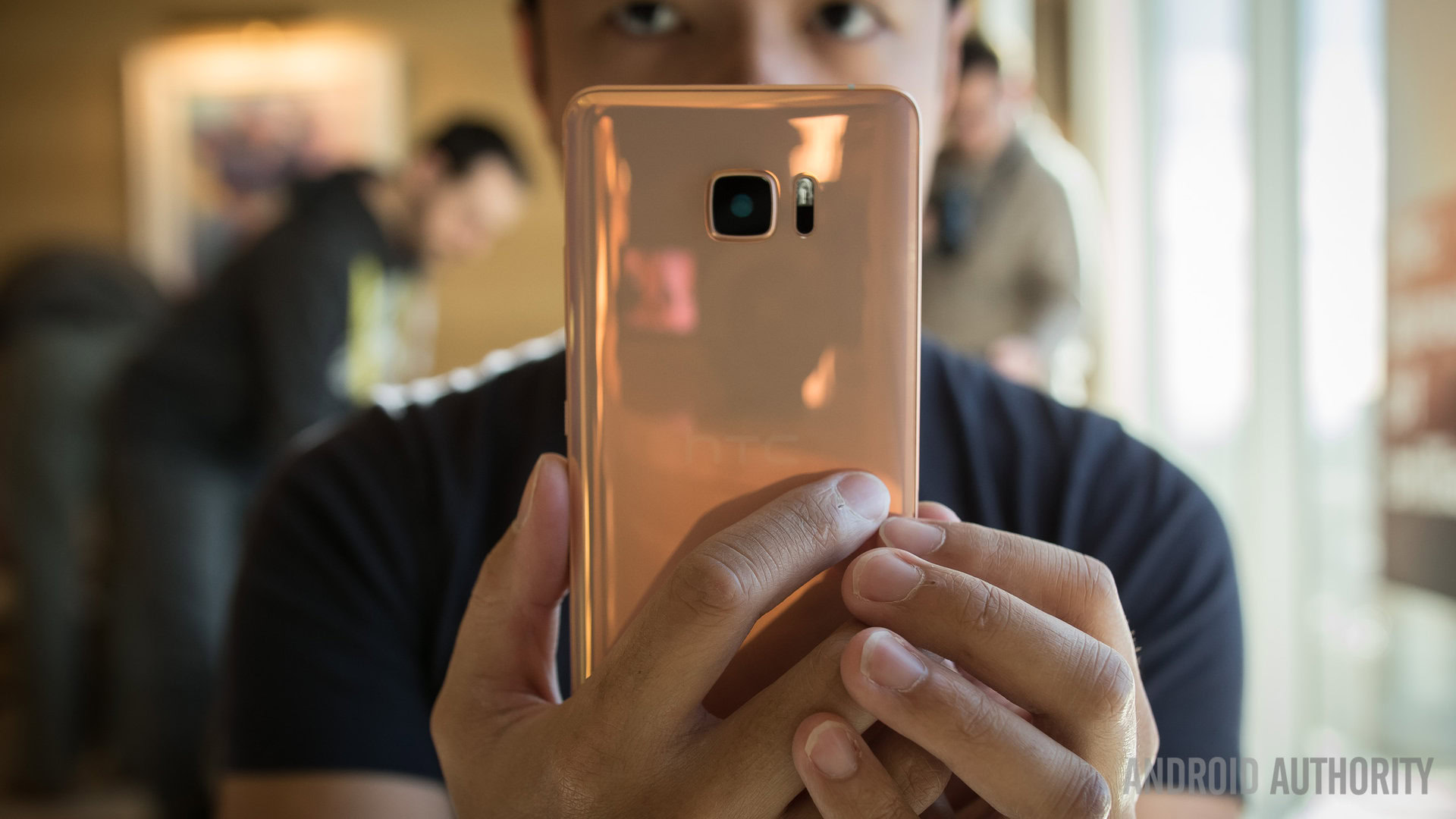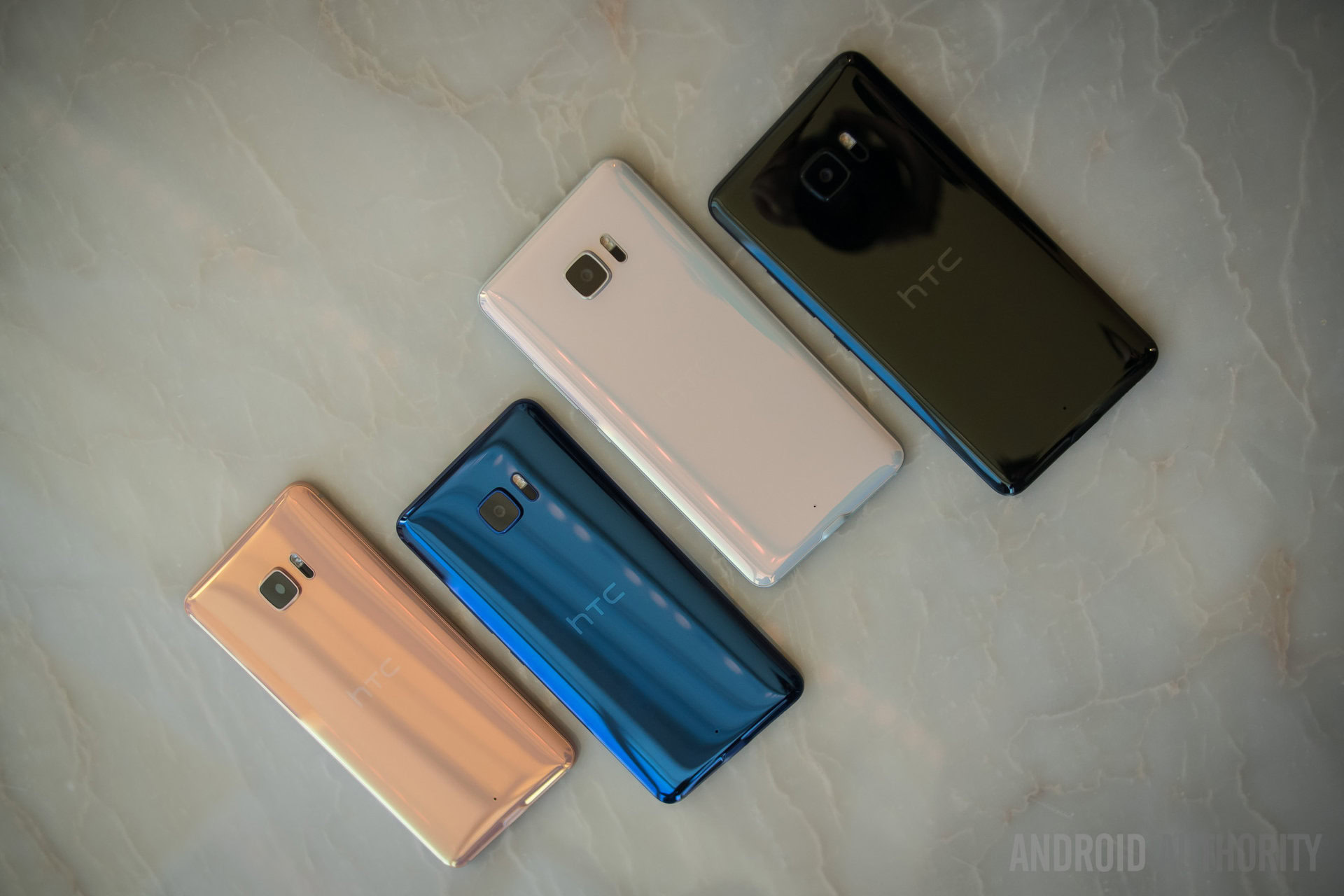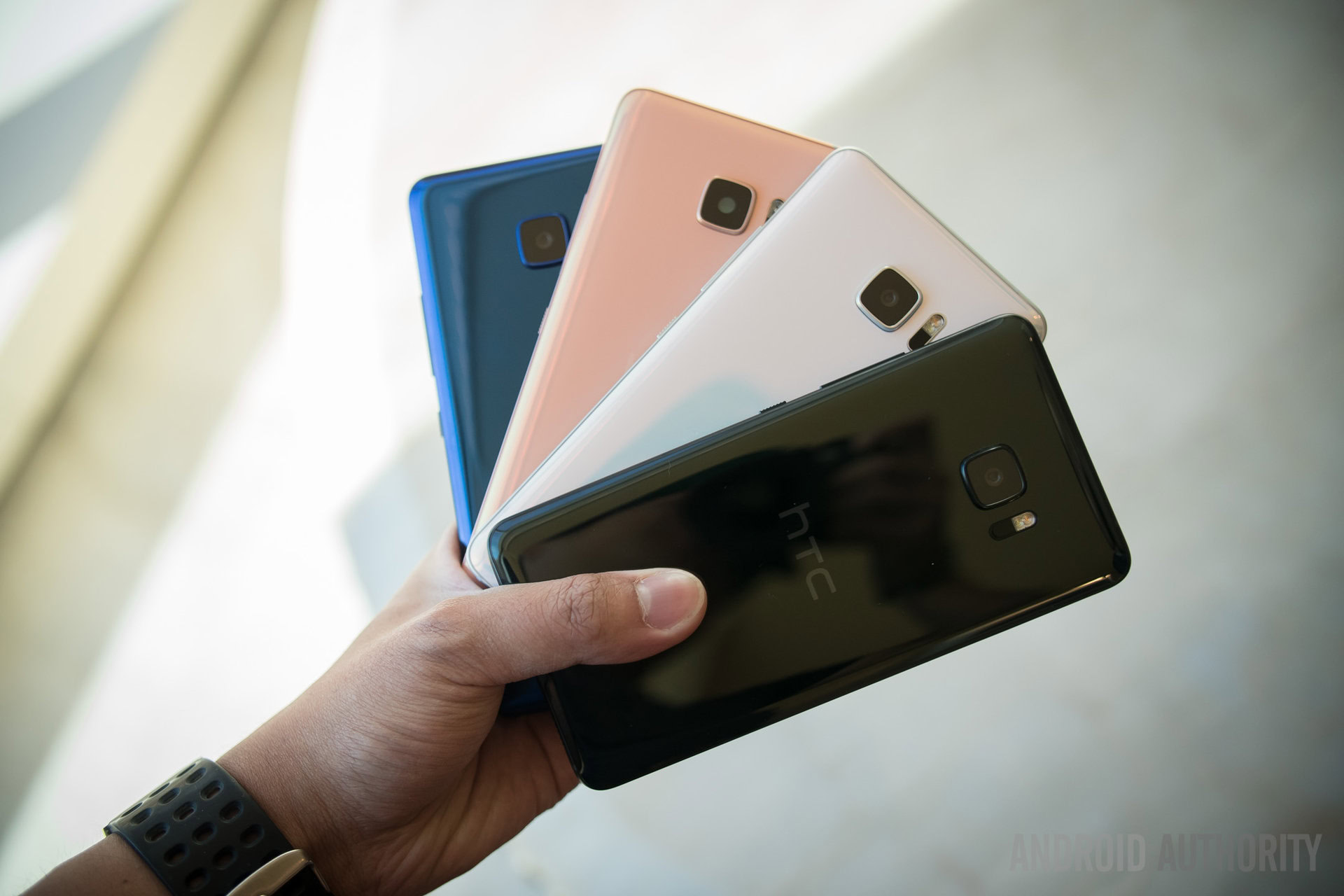Affiliate links on Android Authority may earn us a commission. Learn more.
HTC U Ultra versus the competition: Who wins in the hardware battle?
January 12, 2017

HTC has just unveiled the U Ultra, and it’s fair to say that the phone has drawn quite a bit of inspiration from some of the best phablet flagships over the past couple of years. There’s a secondary display straight from the LG V series, a design that more reminiscent of Samsung’s Galaxy range, and even a virtual assistant that sounds an awful lot like the Google Assistant from the Pixel and Pixel XL.

Of course, HTC has added its own twist on things, including a range of its sought-after technologies and a few new ones. So here’s how the HTCU Ultra stacks up against the competition on the hardware front.
| HTC U Ultra | LG V20 | Pixel XL | Mate 9 / Porsche Design | Galaxy S7 edge | |
|---|---|---|---|---|---|
Display | HTC U Ultra 5.7-inch QHD LCD (2560x1440) | LG V20 5.7-inch QHD LCD (2560x1440) | Pixel XL 5.5-inch QHD AMOLED (2560x1400) | Mate 9 / Porsche Design 5.9-inch FullHD / 5.5-inch QHD | Galaxy S7 edge 5.5-inch QHD AMOLED (2560x1400) |
SoC | HTC U Ultra Snapdragon 821 | LG V20 Snapdragon 820 | Pixel XL Snapdragon 821 | Mate 9 / Porsche Design Kirin 960 | Galaxy S7 edge Exynos 8890 or Snapdragon 820 |
CPU | HTC U Ultra 4x 2.15GHz Kryo | LG V20 4x 2.15GHz Kryo | Pixel XL 4x 2.15GHz Kryo | Mate 9 / Porsche Design 4x 2.4GHz Cortex-A73 4x 1.8GHz Cortex-A53 | Galaxy S7 edge 4x 2.3GHz Samsung M1 + 4x 1.6GHz Cortex-A53 or 4x 2.15GHz Kryo |
GPU | HTC U Ultra Adreno 530 | LG V20 Adreno 530 | Pixel XL Adreno 530 | Mate 9 / Porsche Design Mali-G71 MP8 | Galaxy S7 edge Mali-T880 MP12 or Adreno 530 |
RAM | HTC U Ultra 4GB | LG V20 4GB | Pixel XL 4GB | Mate 9 / Porsche Design 4GB / 6GB | Galaxy S7 edge 4GB |
Storage | HTC U Ultra 64 / 128GB | LG V20 32 / 64GB | Pixel XL 32 / 128GB | Mate 9 / Porsche Design 64GB | Galaxy S7 edge 32 / 64GB |
MicroSD? | HTC U Ultra Yes | LG V20 Yes | Pixel XL No | Mate 9 / Porsche Design Yes | Galaxy S7 edge Yes |
Processor wise, we’re looking at the familiar Snapdragon 821 found in the likes of the Pixel XL, OnePlus 3T and others. On the RAM side, the HTCU Ultra comes equipped with 4GB, which matches what we’ve come to expect from phablets, but doesn’t match the extreme 8GB RAM packed into the recently announced ASUS Zenfone AR. Flash memory option are also equally comparable with the handset’s main competitors, although customers won’t have the option of a cheaper 32GB model of the U Ultra.

There are only some minor tweaks over the Snapdragon 820 that powered the majority of last year’s flagship handsets and performance is pretty much a match between all of these flagships. Some may be disappointed not to see Qualcomm’s new Snapdragon 835 on board, but that will most likely appear in the HTC11, or whatever it ends up being called.
The U Ultra’s display is also a very familiar sight. The 5.7-inch LCD5 panel boasts a QHD (2560×1440) resolution, offering as crisp an image as any of the other phones in our comparison. Interestingly, there’s an option of Gorilla Glass 5 protection with the 64GB model and Sapphire Glass with the 128GB version. The 2-inch secondary ticker display boasts a resolution of 1040×160, which is identical to resolution the 2.1-inch secondary panel included with the LG V20, so they have a virtually indistinguishable pixel density.
| HTC U Ultra | LG V20 | Pixel XL | Mate 9 / Porsche Design | Galaxy S7 edge | |
|---|---|---|---|---|---|
Cameras | HTC U Ultra 12MP f/1.8 rear with OIS, PDAF and laser AF 16MP front | LG V20 16MP f/1.8 + 8MP f/2.4 rear with OIS, laser & PDAF 5MP f/1.9 front | Pixel XL 12.3MP f/2.0 rear with OIS 8MP front | Mate 9 / Porsche Design 12MP RGB + 20MP monochrome f/2.0 rear with laser AF & 2x zoom 8MP front | Galaxy S7 edge 12MP f/1.7 rear with OIS & PDAF 5MP f/1.7 front |
Battery | HTC U Ultra 3,000mAh | LG V20 3,200mAh | Pixel XL 3,450mAh | Mate 9 / Porsche Design 4,000mAh | Galaxy S7 edge 3,000mAh |
NFC | HTC U Ultra Yes | LG V20 Yes | Pixel XL Yes | Mate 9 / Porsche Design Yes | Galaxy S7 edge Yes |
Fingerprint | HTC U Ultra Yes | LG V20 Yes | Pixel XL Yes | Mate 9 / Porsche Design Yes | Galaxy S7 edge Yes |
Fast Charge | HTC U Ultra Quick Charge 3.0 | LG V20 Quick Charge 3.0 | Pixel XL Yes | Mate 9 / Porsche Design SuperCharge | Galaxy S7 edge Yes |
IP Rating | HTC U Ultra No | LG V20 No | Pixel XL No | Mate 9 / Porsche Design No | Galaxy S7 edge IP68 |
3.5mm audio | HTC U Ultra No | LG V20 Yes | Pixel XL Yes | Mate 9 / Porsche Design Yes | Galaxy S7 edge Yes |
Extras | HTC U Ultra USB Type-C, Boomsound, Hi Res audio, HTCSense Companion | LG V20 USB Type-C, MIL-STD-810G certified, 32-bit/192kHz audio | Pixel XL USB Type-C, Daydream, Google Assistant | Mate 9 / Porsche Design USB Type-C, Daydream | Galaxy S7 edge Wireless Charging, Samsung Pay |
OS | HTC U Ultra Android 7.0 | LG V20 Android 7.0 | Pixel XL Android 7.1 | Mate 9 / Porsche Design Android 7.1 | Galaxy S7 edge Android 6.0 |
The HTCU Ultra’s camera package will be familiar to company regulars. It’s a 12MP UltraPixel 2 sensor, which uses large 1.55um sized sensor pixels that, in theory, should result in more light capture and better quality shots. These pixel diodes are even larger than the 1.4um sizes found inside the impressive Pixel XL and Galaxy S7 cameras, but we’ll reserve judgement until we can do a hands-on comparison, as HTC’s processing algorithms have often let its cameras down in the past.
The rear camera configuration also comes with optical image stabilization for smooth looking video capture and better low light shots, along with PDAF and laser autofocus modules. While PDAF and OIS are standard across the range, laser auto focus still only features in a small number of handsets and should allow the U Ultra to focus a little quicker than others when taking shots at close quarters. The front camera offers an 16MP resolution, which is far better than most and should produce sharper looking selfies. The camera can also function in “UltraPixel mode” to lower the resolution but increase light sensitivity. Overall, HTC’s latest camera offering seems promising, if not pushing the boundaries with dual camera tech that you’ll find in phones like the HUAWEI Mate 9.
On to extras and there’s quite a lot packed into the HTCU Ultra, as you might expect from a phone with such a name. Along with the familiar fingerprint scanner, NFC, and BoomSound speaker features, which includes a tweeter and woofer combine, HTChas also included Quick Charge 3.0, a USB Type-C port, and high resolution audio support. Audio buffs may be disappointed to note the absence of a 3.5mm audio jack on the handset, so you’ll have to use a USB Type-C adapter to connect the phone up to traditional wired headphones. Avid music listeners may get a kick out of the company’s USonic inner ear analysis, which is certainly a unique feature although we’re not sure exactly how useful it is.
One of the more interesting inclusions with HTC’s phablet is its Sense Companion. “Artificial intelligence” is shaping up to be the next big flagship smartphone feature and HTCappears to be launching its in-house model a little earlier than most of the competition. Google Assistant in the Pixel XL and Alexa in the Mate 9 US model are the only real competitors on the market right now, unless you count Google Now.
Overall, the HTCU Ultra is an impressive handset that combines excellent base hardware with a wide range of tantalizing extras. The phone is certainly one of, if not the most feature packed smartphones from the company to date, and looks to be a real contender with the best on the market right now. With the Galaxy Note 7 now absent from the phablet market, HTClooks poised to capitalize with the U Ultra.
How do you think that the HTCU Ultra compares with other supersized handsets on the market right now?